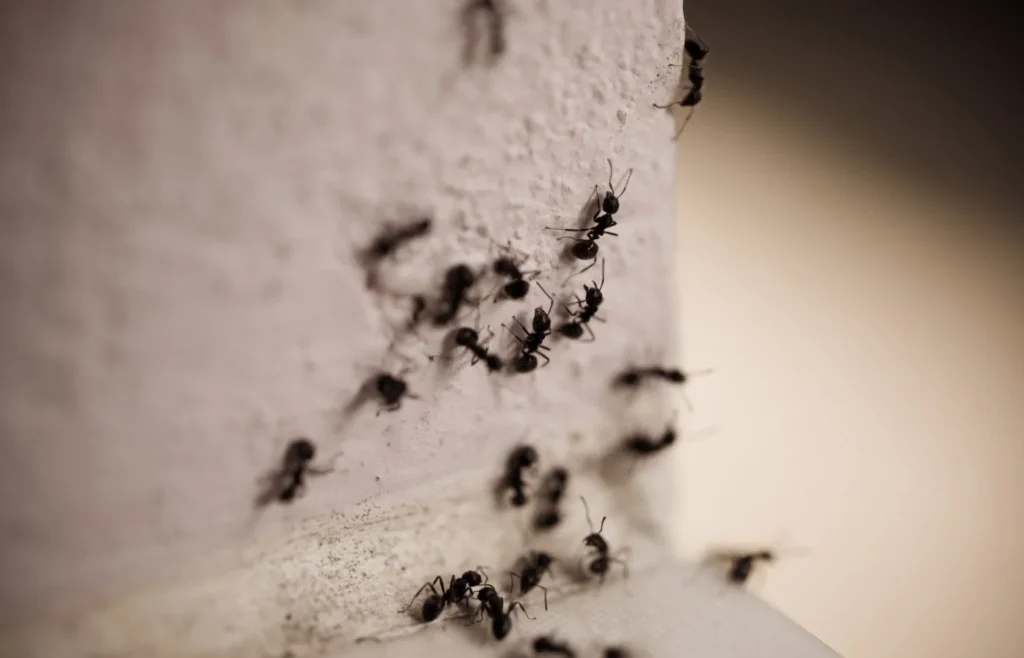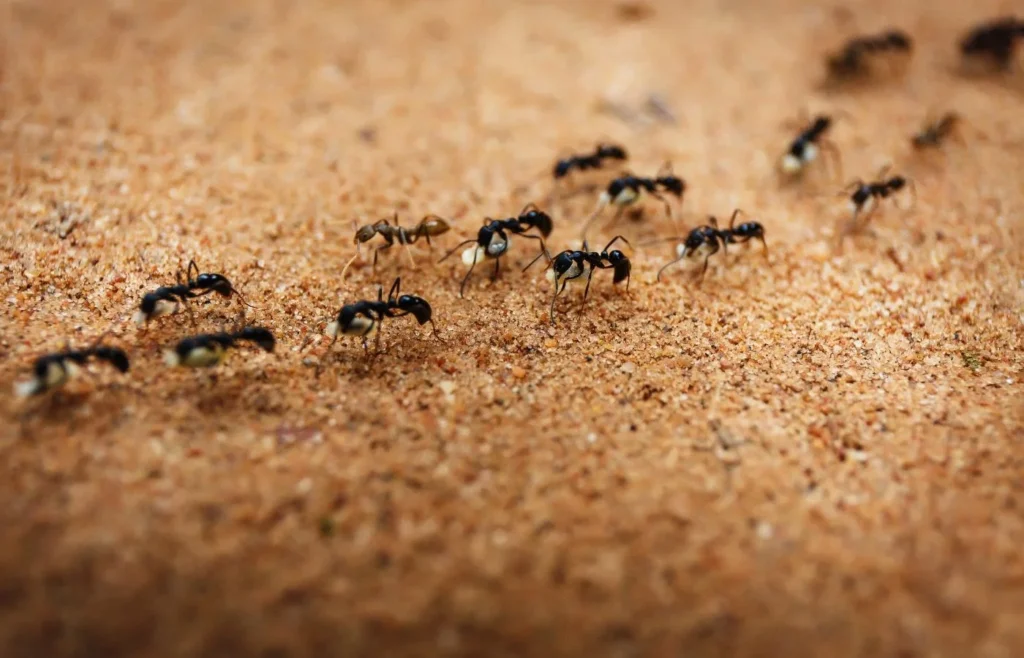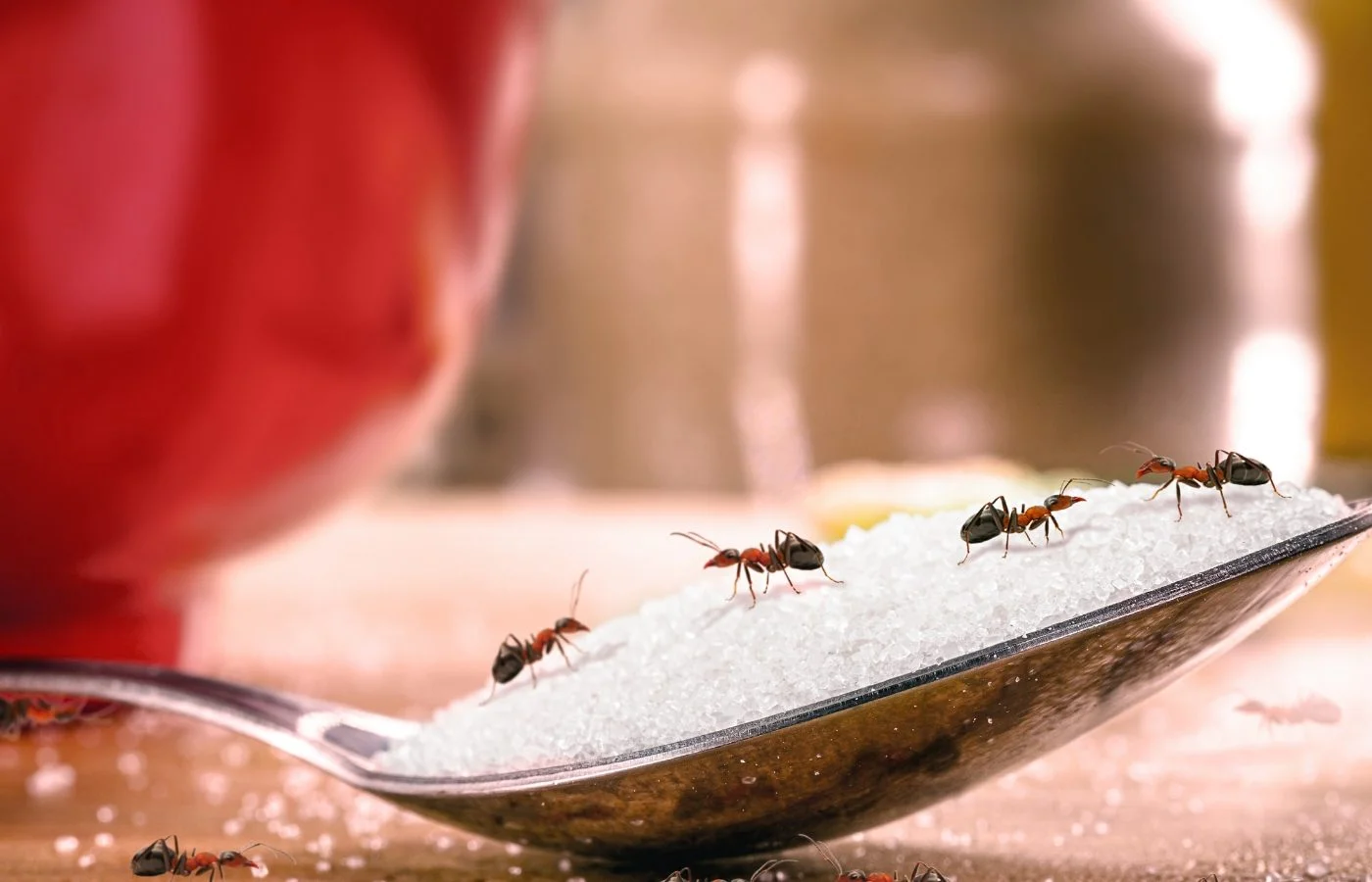Natural solutions have proven their worth for generations to combat ants. These ecological and economic methods can be very effective in deterring these small invaders.
Here are some simple tips to use with ingredients you probably already have at home. Not only are these remedies safe for your family and pets, but they also respect the environment.
White vinegar: the secret anti-ant weapon
White vinegar is a formidable ally against ants. Its strong odor disturbs their olfactory traces, effectively disorienting them. To use, dilute with water in a spray bottle.
Spray on ant-dwelling areas such as window sills, cracks and entrances. Repeat the operation regularly to maintain its effectiveness. White vinegar has the advantage of being non-toxic and leaving a fresh smell when dry.

The baking soda and sugar duo: a natural trap
The mixture of baking soda and sugar forms an irresistible bait for ants. Sugar attracts them while bicarbonate acts as a natural poison. Prepare a mixture in equal parts and arrange it in small cups at strategic places.
This method is particularly effective for targeting colonies, as the ants will bring the mixture back to the nest. Be sure to place these traps out of the reach of children and pets, even if the ingredients are natural.
Peppermint essential oil: a repellent for odors
Peppermint essential oil has a strong smell that ants hate. It masks their pheromones and disturbs their sense of orientation. Dilute a few drops in water and spray the sensitive areas.
You can also soak cotton balls of this solution and place them at the entry points. Repeat the application regularly, as the smell will fade over time. This method pleasantly perfumes your interior while repelling ants.
Lemon juice: a natural ant-repellent
Lemon juice is an excellent repellent for ants thanks to its acidity and its lemony smell. Squeeze a lemon and mix the juice with water in a spray bottle. Spray on ant-frequented areas.
In addition to keeping ants away, lemon juice leaves a pleasant clean smell. You can also rub lemon peels directly on the entry points to create a scent barrier. Repeat the operation regularly to maintain its effectiveness.
Lavender: a repellent fragrance for ants
Lavender is known for its soothing scent to humans, but it’s repellent to ants. You can use sachets of dried lavender or essential oil of lavender diluted in water.
Place the sachets or spray the solution in strategic places. Not only will you keep away the ants, but you’ll also enjoy the relaxing properties of lavender. Consider regularly renewing the sachets or application to maintain the repellent effect.
Salt: a mineral barrier against ants
Salt is a natural repellent that works well against ants. Sprinkle a thin line along entry points, such as doorways or window sills. Ants will avoid crossing this mineral barrier.
This method is particularly useful for protecting specific areas. Make sure to keep the salt barrier intact and replace it after cleaning or in case of moisture. Salt has the advantage of being harmless to humans and pets.
Coffee grounds: an aromatic repellent
Coffee grounds are not only environmentally friendly, but also very effective in repelling ants. The strong smell of the coffee disturbs their senses and keeps them from approaching. Sprinkle dry coffee grounds around sensitive areas or entry points.
You can also create a paste by mixing the marc with a little water and applying it in the cracks. This method has the advantage of recycling your coffee waste while protecting your home. Renew the application regularly, especially after rain if you use it outdoors.

Diatomaceous earth: a natural anti-ant powder
Diatomaceous earth is a fine powder made up of microscopic algae fossils. It acts mechanically by dehydrating the insects that come into contact with it. Sprinkle along the ant paths and at entry points.
This method is completely natural and safe for humans and pets. However, be sure to use food grade diatomaceous earth and avoid inhalation when applying. Repeat after cleaning or in case of moisture.
Boric acid: a natural poison for ants
Boric acid is a natural compound that works well against ants. It acts as a slow poison, allowing ants to bring it back to the colony before it takes effect. Mix it with sugar or honey to create an attractive bait.
Place this mixture in containers out of reach of children and animals. Boric acid, although natural, can be toxic if ingested in large quantities. Use it carefully and always follow the recommendations for use.

